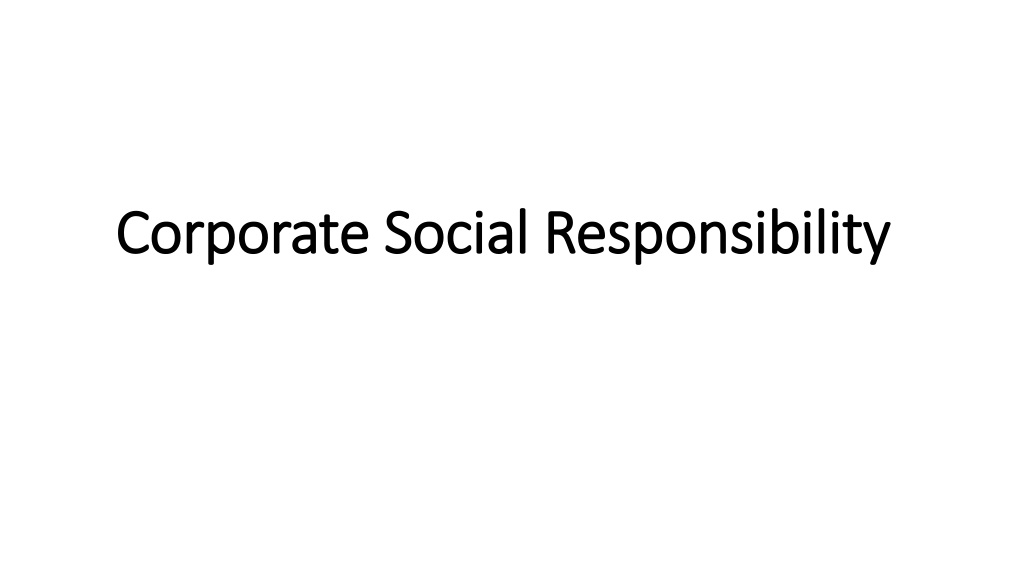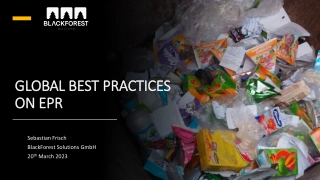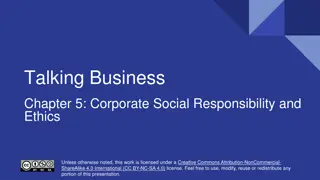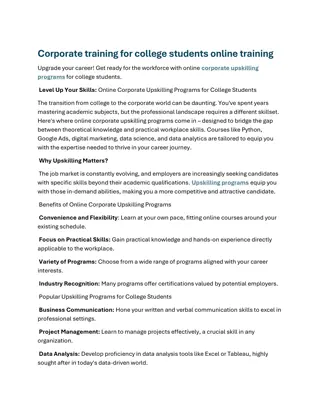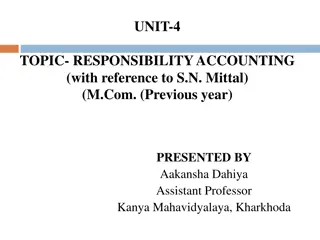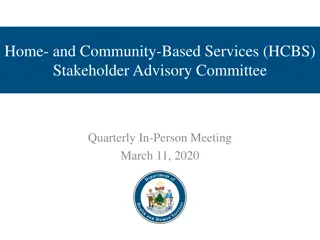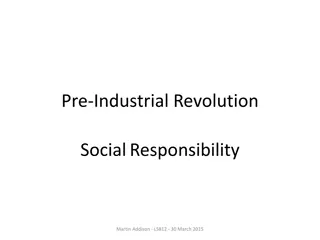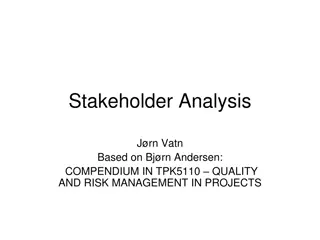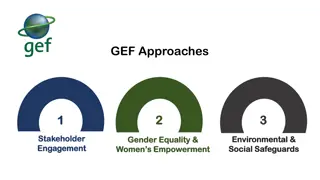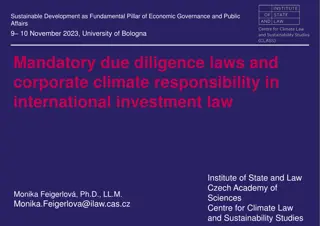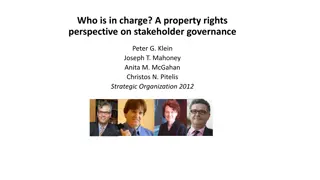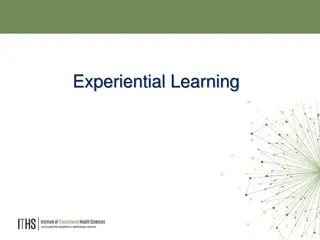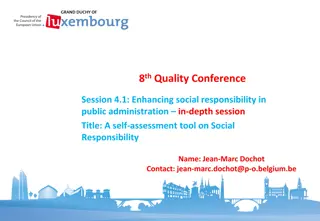Understanding Corporate Social Responsibility and Stakeholder Theory
Carroll's Four Faces of CSR model defines the economic, legal, ethical, and discretionary responsibilities of businesses towards society. The evolution of CSR concepts, stakeholder theory, and the importance of engaging with various stakeholders are discussed, emphasizing the intrinsic value of stakeholder interests in determining firm behavior and performance.
- Corporate Social Responsibility
- Stakeholder Theory
- Business Ethics
- Sustainable Development
- Responsibility
Download Presentation

Please find below an Image/Link to download the presentation.
The content on the website is provided AS IS for your information and personal use only. It may not be sold, licensed, or shared on other websites without obtaining consent from the author. Download presentation by click this link. If you encounter any issues during the download, it is possible that the publisher has removed the file from their server.
E N D
Presentation Transcript
Corporate Social Responsibility Corporate Social Responsibility
Definisi CSR Carroll developed the Four Faces of CSR (Carroll, 1979) in which the definition of social responsibility aimed to fully address the entire range of obligations that business had for society: (i) economic; (ii) legal; (iii) ethical; Economic is described as the primary social responsibility of business to sell products and make a profit. Legal is the firm s obligation to obey the law. Although Carroll s definition of ethical behaviour is unclear, it can be approximately described as society s expectation of business requirements. Discretionary covers philanthropic contributions and other non-profit activities. and (iv) discretionary. over and above legal
Definisi CSR Carroll (1991) further developed the four faces model into a pyramid of CSR that placed great emphasis on economic, then on legal aims, and substituted the term philanthropic . with discretionary
Developments in CSR-Related Concepts Corporate Citizenship Triple Bottom Line Sustainable Development Corporate Social Rectitude Corporate Social Performance (CSP) Stakeholder Model Corporate Social Responsiveness Corporate Social Responsibility (CSR) Business Social Responsibility/ Social Responsibility of Businessman Business Ethics/Business Philanthropy, Charity --1950----1955----1960-----1965-----1970-----1975-------1980-------1985----1990-------1995--------2002------- Developments in CSR-Related Concepts Source: Mohan (2003, p.74).
Stakeholder theory Stakeholder theory posits that the nature, expectations and influence of all firm stakeholders determine firm behaviour and performance. The firm s relationships with its various stakeholders provides managers with a practical focus that enables them to understand and manage the firm s responsibilities within the wider society. Donalson and Preston (1995) posit that stakeholder theory has two major ideas: (i) stakeholders are identified as persons or groups with certain interests in procedural and/or substantive factors of firm operation. Hence, the interest of stakeholders can be identified; and (ii) the interests of all stakeholders are viewed as having intrinsic value.
Stakeholder group Shareholders Expectations Action (reward/penalty) Buying or selling shares, shareholder activism. Buying or boycotting products and services. Work effort or shirking, applying for employment or turnover. Relationship choice/ maintenance/refusal or termination. Return on investment (ROI), CG and the executive compensation. Price or value or quality, truthful advertising. Benefits, safety, stimulation, equal opportunities. Relationships sustained, payment of bills, technology transfer, reputation protection. Customers Employees Business partners Governments and regulatory bodies Tax contribution, local economic Providing/removing social license to operate, regulations and financial subsidies. Providing or removing social license to operate, political support. Supply or non-supply of resources and sinks, support or protest by representative group and bodies. Editorial support or criticism. impact, law abidance. Local community Charity, community investment, sponsorship. Sustainable materials, water or air emissions, energy efficiency, waste management. Media releases, public relations. Natural environment Media
